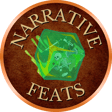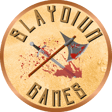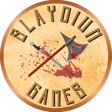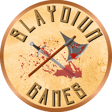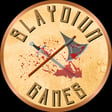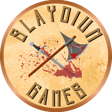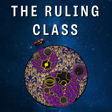Introduction to GMing and Series Overview
00:00:35
Speaker
Whether you're at a game table, in your comfiest chair reading a book, or listening at home, there's nothing like a great adventure story.
Interview with Tom Watkin: Gaming and Leadership
00:00:43
Speaker
But they don't happen by accident. Welcome to the joy of GMing, a special interview series on the craft of great gaming.
00:00:51
Speaker
There's just something magic about sitting down to a good table with great friends, isn't there? If you're a lifelong gamer or a newbie rolling up your first character sheet, if you're a DM or GM or just can't get enough tabletop talk in your day, this is the show for you. Each episode will bring you amazing guest speakers to talk about writing games and running them building fantastic worlds and compelling story arcs and oh-so-useful tricks of the trade.
00:01:19
Speaker
Hear some amazing stories, get inspired for your next game, and join us for an hour and a half or so of lively conversation. This sister series to Narrative Feats, the tabletop anthology,
00:01:32
Speaker
will be released between episodes with our ongoing serialized show. We cover some making of and behind the scenes tidbits of our latest mod as well, so do stick around. I'm Casey Jones.
00:01:44
Speaker
Over the last dozen years, I've written and produced screenplays, children's animation for TV and film, graphic novels, stage plays, murder mysteries, and award-winning audio adventures. I've also been writing and running tabletop games for over 10 years.
00:01:59
Speaker
Join us as we dive deep into tabletop with experts in the field. Experts like our special guest today, Tom Watkin. Hi, Tom. Hi, thanks for having me.
00:02:10
Speaker
You're more than welcome. Tom's been rolling dice and battling imaginary monsters since he was eight when his dad brought home the Red Book and family game nights turned epic.
00:02:21
Speaker
Now, through Dungeons & Dragons at work, he's found the ultimate crossover between work and play, helping others level up their leadership skills one adventure at a time.
Parallels Between Dungeon Mastering and Leadership
00:02:32
Speaker
With nearly 20 years of leadership experience and even longer as a dungeon master, Tom knows that the best way to learn is by doing. or by rolling a natural 20. When he's not crafting worlds or writing about games, he's probably hanging with his family, getting tossed around on the jujitsu mat, or painting miniatures to join his ever-growing collection. Ooh, can't wait to hear more about that.
00:02:55
Speaker
Tom, welcome to the show. Thanks, that's an awesome intro. I'm stoked, that's brilliant. I mean, you wrote it, so I mean, it it it suits you well. It serves you well.
00:03:07
Speaker
ah Let's jump right into it. What is D&D at Work all about? I've, like as um as my intro stated, I've been playing role-playing games for a long time.
00:03:20
Speaker
And I was doing my MBA, and I was doing this course called Negotiation, which sounds pretty boring, but actually, most of the time we were role playing.
00:03:33
Speaker
It was amazing. So the the lecturer set us up. um So about 10 times a day, so it was over a weekend, this course, 10 times a day, we were doing different role play scenarios where we were negotiating with each other.
00:03:46
Speaker
Sometimes we were we were representing countries, sometimes we're representing companies. um And and i was as I was playing this, as we were doing this course, I was like, this is This is basically D&D. I'm loving it. This is one of the best learning experiences I've ever had.
00:04:03
Speaker
and So that sort of stuck in my brain for a while. And um it was sort of ruminating there for a long time. I then wrote ah wrote a book on business development and was writing about business development. And I had this sort of epiphany. i I want to write about Dungeons and Dragons.
00:04:20
Speaker
And I think there's a real... link between playing Dungeons and Dragons and getting those softer leadership skills. And so that's what I started doing. I wanted to start exploring it.
00:04:32
Speaker
So there's a book by Jennifer Ouellette called Me, Myself and Why. And in that, she talks about your memories of role-playing experiences and how you actually remember them as being real.
00:04:44
Speaker
And this this triggered something for me. I thought, okay, so we can use Dungeons and Dragons and the experiences we have to to get... real-world experiences that can then set us up nicely. and In my particular case, I love leadership. So in particular, leadership, I know people use it with therapy and helping people that way.
00:05:05
Speaker
And so my thoughts were, why can't we use this to help leaders gain this experience? And and look, you know I mean, I've got some fantastic memories of sitting around the table. Well, I mean, some ah most of them haven't got much to do with leadership.
00:05:19
Speaker
But they really are they stick in in my mind about how, ah you know, as as a real experience.
Dungeons and Dragons at Work: Professional Development
00:05:26
Speaker
And so I started exploring that and that's why I set up Dungeons and Dragons at work, was to try and ah just explore that a bit more.
00:05:33
Speaker
Another thing there is, you know, when you're dungeon mastering or or games mastering, I thought there was a real parallel. So you're sitting at the table, you've got your team around you.
00:05:43
Speaker
All of them have got different skills. They're all playing different characters. They're all different personalities. You're there not to spotlight and be the hero of the story. They're the hero of the story. Exactly. And you're that you're there to facilitate that, right?
00:05:57
Speaker
And you want to make sure they've all got spotlight. You want to make sure they all get a chance to shine, that the adventure's exciting, that they can grow with opportunities for advancement.
00:06:08
Speaker
And the parallels between being a DM or a GM and being a leader in the workplace, it's uncanny. You're not there to be the hero. You're there to make sure your team are doing a good job.
00:06:19
Speaker
You're making sure they've got opportunities for advancement. You want to make sure they're all getting spotlight. You know, the the the parallels are are unbelievable. And the more I looked into it and the more I wrote about it, the more it's, yeah, it's ah it's a good a good mix. So I've been, it yeah, that's why I started it and that's why I get excited about it. No, absolutely. And it it it reads very clearly in your voice. It's wonderful when someone in a leadership position is enthusiastic about the work they're doing.
Gaming Techniques for Leadership and Teamwork
00:06:49
Speaker
because it becomes clear that what they're working on is something they believe in. You know, it's not just, Oh, this will make me a fast buck and I can trick some people into following me long enough to, for me to make a profit.
00:07:01
Speaker
That's not what this is about at all. Like you are talking about responsibly and capably taking a group of people through an experience where everybody is getting something that they are expecting to get out of it, but in ways that they weren't expecting.
00:07:19
Speaker
For myself as a game runner, ah for about a couple of months now, I've been calling myself a dungeon maestro instead of a dungeon master.
00:07:30
Speaker
I like it. Like I full on conduct a scene and just like a conductor, you know, has his woodwinds over here and the brass over here and the percussion there and pulling them all together and and giving them opportunities to to make music together.
00:07:46
Speaker
We also want, just as you say, to make sure that individual people are getting those opportunities to shine as well. whether they are, you know, next in command on the totem pole or down at the very bottom.
00:08:00
Speaker
So can you tell us in your experience, what things do a good dungeon master and a strong leader have in common with each other? Yeah, so, um yeah, the parallels are uncanny.
00:08:14
Speaker
for But to be a good dungeon master, I think some people make the mistake where they think it's all about them. and they write this fantastic story and they want that story to be told. And sometimes that's true with the leaders as well.
00:08:28
Speaker
It's what they think it's all about them. They forget about their team and they get pretty worked up about what they're doing rather than what the team are doing. So actually, as a good dungeon master, it's about, you forget about the story for a minute. It's about making sure that your players are having an awesome time, that they, I think I said this before, but they all get a chance to shine. So if you know You've not got one person hogging the spotlight because that becomes very boring for everyone else.
00:08:53
Speaker
You want to make sure everyone's having a chance. and And I run my meetings at work like this as I'll go around the table and ask everyone if they've got anything to add. And funnily enough, I do that every round in you know the at the Dungeons and Dragons table.
00:09:06
Speaker
I go around the table. What are you doing next? What are you doing? What are doing? people can't get forgotten. and i'm quite i've Over the years, I've become very consistent. So I will go around the table clockwise.
00:09:17
Speaker
Make sure everyone gets a chance to do something, a chance to shine, so no one's forgotten. No, that's absolutely that's critical. Something else I've learned, again, this is not even including the story yet, but it's to check in with your players regularly.
00:09:33
Speaker
and Make sure that A, they're enjoying it, and get also getting a feel for how they, you know, what they're looking for in the game and how they want their character to progress. Maybe, you know, what things have they picked up on.
00:09:45
Speaker
A good friend of mine, Rich, does this really well. He sends out SurveyMonkey surveys to his players and gets the input from them that way. I haven't quite got that far, but it makes his games really good because we're all engaged with what's going on and he can tailor it as he goes.
00:10:01
Speaker
And of course, leaders need to do the same thing. You can't sit there with your team and just assume they're all enjoying themselves and doing their best work. You've got to check in with them regularly. And even if the check-in, you don't get anything from it,
00:10:16
Speaker
Initially, the fact that you're doing it regularly means that if something comes up, they're then comfortable to tell you. And it's the same in D&D. If you're checking in with your players regularly, you might not get any feedback for the first five times.
00:10:26
Speaker
The sixth time someone might say, oh, actually, I'm not enjoying this or, you know, I want my character to do that. So you're creating that space for people to give you that feedback and to evolve the game together.
00:10:37
Speaker
Absolutely. Actually, that's i've just evolving the game together is something I've really loved. So over the last 10 years, So I had a bit of a gap from from playing the role-playing games.
00:10:49
Speaker
About 10 years ago, i started again. And when I started running my campaign, what I found was really cool was when players were helping shape it.
00:11:00
Speaker
so I would set up the premise. but over So we've been playing the same campaign, different generations within the same campaign for roughly 10 years. And a lot of that game world has now been shaped by the players.
00:11:14
Speaker
It's not me doing all that the heavy lifting. They're actually shaping it And then they love it.
Engagement Strategies in Gaming
00:11:18
Speaker
We've got all sorts of lore and traditions that have come out of the player's ingenuity. And that's amazing. It makes for, I think, I believe it makes for a much stronger and much more engaging game.
00:11:30
Speaker
And I think it's the same in the leadership space. You want to, you know, you don't want to just in inflict visions and purpose on on the team. You want to involve them in what are our values, what's our vision.
00:11:42
Speaker
get them buying into it and helping it with you. What are their wants? Exactly. Exactly. And so the the two the parallels are just, yeah, they're unbelievable. So I believe if if you're a good dungeon master or or game maestro or dungeon maestro, I love that term. i think that's brilliant. I think you you're well on your way to being an excellent leader.
00:12:02
Speaker
Checking in with your team is critical. It accomplishes so many different things over the course of a game. Even from the very start, when I am doing the recap of the previous episode, we'll call it just to bring everybody back up to speed.
00:12:20
Speaker
I make a point of naming each character at some point during the recap, just to like say, okay, Captain Courageous. This time last week, you were up to your knees in blood and filth, crawling your way through the the underdark of the dungeon. What were you feeling in that moment in the dark?
00:12:42
Speaker
You know, get them located inside themselves of like, this was happening. This was real for my character. What were they feeling in that moment? What were they thinking about it as a moment to an opportunity to reground them in the scenario and do that for each character.
00:13:00
Speaker
And the answer sometimes can be a whole litany of like, well, I'm going to monologue now for 30 seconds. Well, I'll get this out of my system and feel dramatic and have the spotlight for a minute versus someone is like, we got to get the hell out of here.
00:13:14
Speaker
yeah And that's the entirety of their answer. i'm like, that is a great answer. Perfectly in character next and moving on. But something else that I like that checking in does is putting the bug in their ear.
00:13:26
Speaker
about ah their cross involvement. Like if we have Captain Courageous, who is usually very decisive and active and eager to go as early in the initiative round as possible,
00:13:38
Speaker
but we've also got shy guy over here who does not speak up unless there's like a good three or four seconds of silence beforehand. Cause we don't want to interrupt somebody, you know, and they're just not as confident in themselves yet.
00:13:52
Speaker
One of the things I like to do is involve them with each other. So like captain courageous, you know, you've noticed that shy guy has been watching and taking notes now for some time.
00:14:03
Speaker
What were your first impressions when you saw him doing this? So that they get in the habit of thinking about each other? So that in the future when it's Shy Guy's turn and say, so Shy Guy, you just saw a Captain Courageous just take one in the face for stepping up to the Orc with a plus two Warhammer.
00:14:19
Speaker
what is going through Shy Guy's head right now? It's like, oh, I've got a healing potion. Let me go hand it to him. Getting them thinking about each other as a team and not just about, well, here I am and here's my objective and here's my piece of the pie that I've got to fill.
00:14:32
Speaker
I find it really adds and facilitates their their cooperation and their teamwork down the road. Yeah, that's great. What are some specific leadership traits you think that hat that ah that a good leader would have in the workplace ah that they could bring to D&D table?
00:14:53
Speaker
Yeah, so you there's quite a few. ah One is active listening, being open to listening. um And, you know, I'm sure a lot of us have played with...
00:15:04
Speaker
DMs or had bosses who like the sound of their own voice and will monologue for a long time, you know, um and you're all sort of sitting there going, okay, when are we going to get to roll some dice? Or if you're in the workplace, when are we getting out of this meeting?
00:15:18
Speaker
This could have been an email. is Exactly. Exactly. So think you need to be able to listen. And as a DM, that's really important.
00:15:29
Speaker
So throw ideas out there, throw the scenario and the scene out there and and then listen to what they're what they're saying. That's a key one. Also, being able to adjust your style ah depending on the situation. So you're not always a hammer going in and and being aggressive, but but changing your style. And this is great in in Dungeons & Dragons and other games because you're going to have scenes which are quite aggressive. So then you can get hyped up when there's a combat or something and start, you know, really ratchet up the tension and the energy.
00:16:01
Speaker
And maybe there are down times. but things are quieter and it's a bit more emotional then you have to be able to you know change your mood and thus listen to the mood of the table and that's the same in in the workplace so you've got to really be careful about the way you're expressing yourself um and something that i've learned as a as a leader in the in the workplace is that when you've got when you're a general manager or you're you know you're up the the leadership chain, people listen to you differently and really pay attention to cues that you don't necessarily know that you're giving. And I think this can be the same as a dungeon master.
00:16:39
Speaker
You know, you can, if you're not careful, um you can affect the whole mood of the table. So if you're having, you know, if you're having a bad day, that can affect the whole table more so than the individual players because the the focus is so on you. So I think, you know, those two things are very important.
00:16:55
Speaker
And, uh, Yeah, commut communication in general, I think you need to think about how you communicate with people. So that's the listening part, but also the way you're talking to people.
00:17:06
Speaker
And there's got to be empathy there as well. You know, if someone's not enjoying it at the table, you don't you don't smack them down. You actually listen to what they what's going on if someone's not enjoying it.
00:17:18
Speaker
So there's all those sort of softer skills that are really important on both sides of the table. That's a great answer. Yeah, no, listening and staying in and step with your players as well as your coworkers is a lot easier when you understand where they're coming from. One of the things that I do when we're starting a new table with a new game is get a clear idea from each player of what it is their character wants
00:17:49
Speaker
So that I know as the person running the show, so to speak, that I can make sure to include that Philippe gets a good fight scene and that the elven wizard has an opportunity to research some books and crack into a mystery.
00:18:03
Speaker
While the cute halfling has a chance to play with some animals and do some do some cleric level magic and things like that. that our tiefling has some chances to do role play with the captain because there's something chemistry wise going on there and we might as well give them a chance to do it.
00:18:18
Speaker
And similarly, I imagine in the workplace, like if you've got a task to fu fulfill, if you understand where all of your people are coming from and what their strengths are, maybe it's a little easier to balance who's getting what task to do that fits into their strengths and their, their, their their already existing ah desires and capabilities. do you find that to be true? simplyly right Yeah, you're spot on.
00:18:45
Speaker
And that's one of the good things about playing games like D&D and d and other other games like that is all the characters are so different. yeah You've just described a a huge range of and characters that can be in the party.
00:18:58
Speaker
And then so as a as a player, as well as ah a DM, you're you're trying to all do things together. So that teamwork aspect is unbelievable because you're you know, pulling on each of the different characters' skills, and then you'll have some players who have got some great sort of left field ideas, and then you all start running with it together and trying to facilitate it.
00:19:16
Speaker
And so, yeah, understanding the the strengths of the players and the characters, and then like ah like you say, in the workforce, understanding their strengths, you know, who who do we need to work on a particular project? who Who can be a good project manager?
00:19:29
Speaker
um Who perhaps shouldn't be talking to clients and should be doing some other things? It's all that balancing. And, you know, And that's one of that's why I think role-playing games are so good because you can make those mistakes where you maybe don't hit the mark, but the actual outcome of it isn't too drastic.
00:19:48
Speaker
and And if you're, especially new newer dungeon masters and games masters can often be a bit overwhelmed. But if if you're if you're trying hard and you're you know giving it a good go, your players can forgive almost anything. you know um if you make a mistake, you're like, sorry, ah you know i got it wrong there.
00:20:05
Speaker
They don't mind. so it's a really safe space to practice this stuff, you know. i mean, i when we first went to, we moved from AD&D to 5e and my players knew the rules and probably still do know the rules way better than me.
00:20:19
Speaker
So I'm always leaning on them. Sure. And as a group, we we're doing it together, which is great, you know. If I get a rule wrong, oh well, that's no biggie. Yeah. Like the term house rule has become such a welcome add on to the the vocabulary that we can use. And I would like to hear how it translates into the workplace.
00:20:42
Speaker
But like recently I had an instance where there was some disagreement about a particular ruling on a feat that a character could do.
00:20:55
Speaker
and whether or not it counted as an action of magic, because they'd already done something with that same
Decision-Making and Conflict Resolution
00:21:00
Speaker
swing. We took a moment and like said, let me review here because we've got access to five E dot tools and absolutely wonderful resource that's online and free.
00:21:10
Speaker
And despite the name five E dot tools, it is updating to 2024 already has a lot of the 2024 updates, but there was someone one at the table who was trying to say, well, you can't do that to another player and coming from a place of like knowing the rules rather well in the back of their head. And I was like, well, hang on, you know, I am the DM here. I'm going to be the one making the last final adjudication on things.
00:21:34
Speaker
Let's just breathe for a moment. Let me make sure that we're all on the same page and go from there. And it worked out. It worked out smoothly, you know, yeah even just by addressing it for a couple of seconds and without, you know, getting heated or anything, but just like no firm confidence. No, that's okay. I'm the one in charge here today. This is how it's,
00:21:53
Speaker
I'm going to be the one making the last call. And like the fact that they had already agreed to me being the DM in the first place, set them up to be in agreement of this. Okay. They are making a decision with confidence. We're going to follow that and get and take it wherever they decide to take it.
00:22:08
Speaker
And I still checked in with the players of like, okay, here is the ruling we are making on this. These are my reasonings behind it. Do you agree? Or am I like, am I in the minority? And literally everyone else is thinking the other way.
00:22:21
Speaker
No, we're in agreement. Okay. And we move on. Yeah, it was a speed bump in terms of like the momentum of the game and everything. But I think it was also necessary to smooth out so that it wouldn't become an issue two rounds later, you know?
00:22:35
Speaker
Yeah. I've had very similar experiences in in early one of my early groups. We had someone who didn't necessarily know the rules very well, but always wanted to look up the rules.
00:22:46
Speaker
So, you know, someone's falling off a building. Oh, I'm going to look up the rules for that. So they did it a couple of times and everyone, hang on a second, this is really slowing things down. I did a similar thing to what what you were saying is you you sort of say, nope, let me just think about this.
00:23:00
Speaker
Now, this is what I'm going to rule. We're going to do this in the moment and we'll revisit it afterwards if we need to. And it keeps the game flowing. Now, in a leadership position, often you get tricky things where you've staff members disagreeing or, you know, coming'd coming to verbal blows.
00:23:17
Speaker
I think being able to say, I'm going to take a minute to work this out, you know, talk to each of them, have be that calm influence and just say, you know, take things down a notch, not hype it all up and then get everyone out of control is is a very powerful skill and you can definitely learn that at the table for sure.
00:23:34
Speaker
yeah Because some people get really fired up about rules. i'm very lucky in my group, we're quite loose. um In fact, in most of the games I play in, everyone's pretty relaxed about the rules. They're more excited about telling the story.
00:23:46
Speaker
But you know there's different different people out there who who like doing things different ways. And having that communication, being open about why, like you've said, you know why are we doing this with this particular rule? So I've i've changed the way, so'm talking about house rules, I've changed the way we do our 5e games.
00:24:04
Speaker
with With the long rest, I think it's in the Dungeon Master's Guide, actually, you can as an alternative, you have like a week-long rest rather than the day. ah wow. So it makes it, and they're dungeon-delving,
00:24:16
Speaker
So it makes things much, much more dangerous because you don't have the chance to to do short rests as much. The long rests are much more take a longer time. So i but i did before we started the game, I did check in with everyone. This is how I want to play it, and this is why. I want to front the danger to feel ratcheted up.
00:24:33
Speaker
How do you guys feel about that? And they were like, yeah, let's And I did say, if we yeah you know if we don't if we're not enjoying it, we can change it. And I've done the same thing at work. you know We've put things. new policies and procedures in place for different things and I'll say to the team this is what we're putting in place and this is why I think we should be doing it I'd like your feedback but let's give it a go if it's not working we can revisit it and evolve it I think yeah that's a useful way to be don't just get stuck in the mud and say this is the way we're doing it my way or the highway because you're going to lose people pretty quick yeah That's true. Can you walk us through how you're able to practice those leadership skills playing D&D?
00:25:15
Speaker
Yeah, that's a great, great question. So there's a couple of ways. So i I've done a lot of dungeon mastering. So I think there it's quite straightforward. You take some of the situational leadership models. You can have negotiation skills, that sort of thing. You can take the models that you learn. So for instance, when I was doing my MBA, you can take the models I've learned from that.
00:25:36
Speaker
You can actually apply them to to the game as you're going. And it can be quite fun as a dungeon master to think, right, what if we had a leader who wasn't doing these things? You know, what if we've got someone who's very authoritarian, you know, totalitarian, they're very blunt.
00:25:53
Speaker
You can have your NPCs behave that way and see how the um characters and the players react to that. And it can actually give you good, you know, how not to do it can be just as important as how to do it, but you can do it in a safe space without getting your team in the in the workplace offside.
00:26:08
Speaker
that's smart. the other The other one is as a player, you can really start doing this stuff. So if you think, I'd like to learn, I'd like to be able to do negotiation bit better, you could start taking those models and applying them as your character.
00:26:23
Speaker
The other thing you can do is you can You know, perhaps you think, right, i mean you know I'd like to do more and more around the leadership side. You don't have to be that I am the leader of the group. Instead, you can be thinking, how can I facilitate teamwork? How can I make sure everyone's got the spotlight?
00:26:38
Speaker
How can I make sure we're all planning together and we're cohesive as a team? You know, what's the culture of our group look like? How can I make that better? And you can take that and take ownership of that and start actually practicing it um as your character or as a player as well, you know, as an actual round the table.
00:26:55
Speaker
start using those skills. I think the key is to be purposeful about it. So actually think about why you're doing it and how you'd like to how you'd like to apply it. But once you've practiced it a little bit as your character, will start coming more naturally and then you'll be able to use it in the real world.
00:27:13
Speaker
it's ah I think it's quite a powerful opportunity because as I said earlier, if you get it wrong, you know if your character's interacting with NPCs and you're practicing maybe situational leadership and and it goes wrong.
00:27:26
Speaker
It doesn't matter, you can learn from that. If you're doing that in the real world with a client, if things go wrong, it could be you know a much more serious outcome. um yeah it's It's a great toolbox, it's like a sandbox to play in, isn't it? ah Practice those skills. It's this an amazing opportunity.
00:27:44
Speaker
It really is. And not just the task completing skills or practicing the resourcefulness one might need when a problem presents itself that is outside the box, but also just socializing role play has been and continues to be a wonderful buffer for lack of a better word of like safely practicing those social interactions without so much of the fear for lack of a better word around. Oh, well, I said the wrong thing and now Jerry's going to be mad at me.
00:28:22
Speaker
you know, yeah versus, oh, well, Grorlac took that the wrong way and I'm going to be at a minus one to social interactions with them for the next hour. Damn. Like with some of the pressure off, it becomes a little easier to say, okay, I might make a mistake here, but I will learn from it.
00:28:40
Speaker
Being able to watch those events unfold, being a part of them and seeing, oh, that could have gone a little better if I'd done X differently. Or, oh, you know what?
00:28:51
Speaker
I'm glad I didn't say so-and-so. That could have been a lot worse. Those opportunities to learn benefit us just as much in the real world as they will at our next session of D&D two weeks from now.
00:29:03
Speaker
Exactly right. I would encourage our players and our GMs out there to lean in to the opportunities presented by the mistake, because there is a lesson in there almost 100% of the time.
00:29:18
Speaker
Yeah. and And something you can do, which is great in around the table is if you do a social mistake, i'd like you say, you might get a minus one to social interactions with that NPC, but also you can discuss it. You can own it and say, man, guys, I shouldn't have said that. You know, why did I inflame the the conversation and we ended up in a bar fight?
00:29:37
Speaker
You know, what could I have done differently? Or, you know, and then as a group, you can have a laugh about it, but also, you know, unpick it a little bit as well. and without going into too much depth. But I think that can be quite valuable, get others perspectives on it.
Play to Lead System: Leadership Training
00:29:50
Speaker
Absolutely. Now, I would love to hear more about the system that you've built called Play to Lead. I would love to hear about the principles that you've built around it. Start at the beginning.
00:30:02
Speaker
Imagine our audience has no idea what the Play to Lead system is. What is the Play to Lead system? Okay. so when ah So as I've been ah working on D&D at Work, I started thinking,
00:30:15
Speaker
about, you know, things we've just been talking about, how great it is to learn using a role-playing game. But Dungeons & Dragons is isn't the easiest game to pick up, especially if you have never experienced anything like it in the in the past.
00:30:30
Speaker
So what I was trying to do was I wanted to create a game that was simple enough for people who had never played games before. Perhaps they played Monopoly. So six-sided dice were a key. The ah the de the d twenty my favorite the and the and the D8s and the d twelve s none of them. We needed D6s only so people were comfortable with it.
00:30:50
Speaker
Okay. It needed to be simple enough that people could basically learn it in five minutes. I'm not sure I've achieved this, but this is what I'm working towards. It's still a work in progress. It needs to be able to be learned in five minutes. It needs to be focused on decision-making, not dice rolling. So, yes, there are is dice rolling, but it's more about the team interaction and the decision-making.
00:31:11
Speaker
That was the sort of concept behind it. Okay. And then it also needed to be done across genres because what my thinking was, we can use this, something like this, in the workplace. So when I was a junior leader, I was working for a big consultancy and they they put me through like a junior leaders course, which was a brilliant.
00:31:31
Speaker
But I think how good would it be to put some of the things we were learning into practice and how great would that be to do in role playing scenarios as a group? So you could use a system like this where it's D6s.
00:31:45
Speaker
I've also got a dice pool that people they have to negotiate about when they're using effectively for advantage. So they'd have to negotiate about how to use the dice pool. And then it's, you know, you could run small scenarios that are all about the decisions.
00:32:00
Speaker
And then afterwards they would then think, right, okay, so we learned this in our leadership training today. this scenario has let us pra actually practice and experience it and it let them leave that that um experience with real world, well, real lived experience, even though it was at the table.
00:32:18
Speaker
So that was the concept behind it. um it I think it's I've taken inspiration from a couple of Rawls-Lite games, Cthulhu Dark, i don't know if you've ever played that.
00:32:32
Speaker
And Cthulhu Dark and Those Dark Places, both horror games, which probably says more about me than than anything else. But you've just got one stat. So in in this case, you've got exhaustion.
00:32:46
Speaker
That's it. And when your exhaustion hits six, you in that's it. You're exhausted and you're out of the game. and you you You're rolling your D6s. You need to get a four or more to succeed.
00:32:57
Speaker
if you're using You can use an exhaustion dice to try and give you an extra chance to succeed. But if you fail on that one, you take a point of exhaustion. And then I've created ah a scenario for it based on a sort of Indiana Jones type escape from the lost temple, uh, game, because again, i mean, I'm hugely passionate about a fantasy and science fiction.
00:33:18
Speaker
Uh, when I was, when I first got into D and D when my dad brought that red book back, I was really into Lord of the Rings. That was one of my earliest books that i got really into, but of course that's not for everyone. So you want to have the genre to be able to be enjoyed or picked up by people who aren't into this culture like i am.
00:33:41
Speaker
So I was trying to create the game so it could go across genres. Maybe, you know, I had an idea where you could have everyone in ah a submarine that sort that's sinking rather than a spaceship and then they've got to do stuff together try and get out of it.
00:33:53
Speaker
But they really ratchet the pressure up. ah Yeah, so thats so that was the thinking behind It was that it's simple and it can get people thinking and making decisions.
00:34:04
Speaker
And then the dice roll sort of helps facilitate that rather than, so rather than, you know, sometimes people will say, oh, I want to make an insight check to see if that person's lying. In this instance, it would be more of a how does the team work out whether that person's lying? Let's not roll for it.
00:34:20
Speaker
Let's actually work it out. And I try and do that at my table, regardless of the system that we're playing. That's really smart. Yeah, one of the things i love to do both as a writer as well as a game runner is to illustrate what making a particular mistake results in almost immediately so that without having to skin their own shins, so to speak.
00:34:44
Speaker
Like they can see like, oh well, if we make that choice, that disastrous thing is gonna happen. Good to know. Let us try to avoid making that particular choice. Have you found things like that to be useful in a team building game where like, you know, you can, where the players can see how certain decisions might rule out without necessarily having to go down that particular path.
00:35:07
Speaker
ah You definitely want to foreshadow the consequences. I think in team building games in particular, you need to be really clear about what the different outcomes can be.
00:35:18
Speaker
ah yeah Really clear. So i think I've made that mistake in the past, not not necessarily on team building games, but I'm very interested. like as so As I mentioned in my intro, I like collecting miniatures and playing games with miniatures as well.
00:35:32
Speaker
um Yeah, my wife's pretty upset. It's taking up more more and more space in that. ah ah but That's an aside. And I like things to be... I like games where the outcome isn't necessarily very clear.
00:35:49
Speaker
ah like that ambiguity. So I ran a game for some friends of mine. It was a six-person miniature game, and then I was DMing it. And everyone had different objectives. Everyone had secret objectives.
00:36:00
Speaker
No one quite knew what the outcome was going to be. And the first one went really well. The second one, I got a little bit overexcited and added more ah unknown uncertainty to it and more obscure outcomes and and hidden things.
00:36:17
Speaker
And it didn't work quite as well. I think you've hit something there. I think you need to be very clear about what the outcomes are. Having lots of hidden things and then betrayals and and that sort of thing can be exciting, but when you overdo it, it's not so good.
00:36:29
Speaker
And if you're in a limited time, So you're doing team building exercise or you're doing something like play to lead, which I envisage being played in about an hour, and I get sessions down to about an hour, you need everything to be really clear.
Game Management Techniques
00:36:41
Speaker
What you're trying to do, what the outcome of failure is, foreshadowing ah outcomes. And I do this in my gay in my um regular games as well, is I don't tend to have traps really well hidden.
00:36:55
Speaker
I tend to foreshadow them. You know, there's scorch marks on the wall. You can see some strange lines on the floor. So they're not rolling to search for traps. They're actually, they know there's a trap there. What is it? Are they going to ignore it? So a couple of weekends ago to their detriment, possibly.
00:37:12
Speaker
ah Exactly. A couple of weeks ago, I'd, um, there was scorch marks on the wall and there was holes in the wall. And I was, I was trying my best to let them know that there was something dangerous and the fighter got overexcited and ran down the corridor and proceeded to get a fireball.
00:37:28
Speaker
Um, So, you know, there's only so much foreshadowing you can do, but I do think you need to have it clear so you can see that there are consequences there and there are going to be potentially in the in-game brutal, but in a team building exercise, you know, what what is what is the consequence of failure? Yeah.
00:37:45
Speaker
That's really good. So you talked about how like an ideal game of play to lead is roughly an hour. yeah Can you talk to our listeners about how some ways that you ensure that a scene doesn't run too long before you get to the next beat of your story?
00:38:03
Speaker
Yeah, that can be difficult to do. and that takes quite a bit of practice. But I think This comes back to leadership skills. You know, when you're in a meeting and someone's talking too much and they're going over old ground, as a leader, you have to be able to call people out on that and say, right, okay, look, we've talked about that. Let's park that. Let's move on.
00:38:25
Speaker
So in play to lead, I think you should be able to play it in a lunchtime or maybe an hour, an hour and a half. you don't work People are so busy nowadays, you don't want to, particularly if it's a work-based thing, you don't want to be taking up too much of their time.
00:38:37
Speaker
Otherwise people aren't going to a be engaged because they'll be thinking about all the other tasks they need to do. Yeah. So you you need to need to sort of keep it narrow. So the way I've done it with my test adventure is you've got four scenes. So you keep it to a very few, very small number of scenes, each of them quite dramatic and each of them with a very specific um problem to solve.
00:38:59
Speaker
So it could be that the roof has fallen in and you need to dig your way out. and you've got them set up so they've got different skills so they can do that. So maybe you've got the archaeologist can do some things. You've got, you know, what was the other thing? Other ones, your pilots can get can help navigate rafts down rivers.
00:39:21
Speaker
So very specific. So it's very, very tight. I don't know if you've heard of the five-room dungeon concept. Yes, I was just, I was thinking about bringing that up, actually. I love using the five-room dungeon layout, please. Exactly.
00:39:34
Speaker
Exactly. I love it as well. I find the five-room dungeon layout incredible, and I use that a lot with my planning. But I've taken that concept and sort of narrowed it down so it's maybe even a three or a four-room effective dungeon. and Look, they don't have to be rooms. They can be scenes.
00:39:50
Speaker
And then it's making sure, so you've got to be very aware of time as ah as someone running one of these games. If it's getting, if they're really stuck, you start throwing in clues.
00:40:02
Speaker
You start helping, you know, giving a few suggestions. um And if they're really, someone's talking too much, you can, you've got to take take the leadership position and sort of just direct them a little bit as needed. And make sure that if it's, if they're beginning to overrun, you call them on it.
00:40:21
Speaker
The other thing is to have a scene or two, well, if you've got it down to four scenes, having a scene that you can pull out. So if things are going too slowly, you pull scene number three out.
00:40:32
Speaker
and you just go straight to the end so you've you've got to just massage it as you go so it's not the easiest thing for a new dungeon master to do i think to run a game like this in such a tight time frame would take a bit of practice absolutely for someone someone who's been doing it for a while it would be i think would be would be fine in a normal game so i do this as well In a normal game at the table, I've got a couple of players who have a tendency to get quite indecisive. What spell should I use?
00:41:04
Speaker
It gets to their turn and they're looking up spells and all this sort of thing. So I started using a technique where i'm saying, right, okay, that's that's great. What I'm going to do, I'm going to keep moving around the turn order and then I'll come back to you when you've worked out what you want to do.
00:41:16
Speaker
Because what you don't want to happen is to have the game stall because someone can't think about how they want what they want to do next or what spell to look at. So I then circle back to them at the end um or You know, have you have you worked out what you're doing? no okay, we'll keep moving on just to keep the action moving. Because if someone's really not sure, and look it's quite overwhelming. Sometimes these games are overwhelming, you know.
00:41:37
Speaker
I like to ratchet up the pressure as much as I can at times, you know. Like, come on, come on, things are happening, rocks are falling down, you you know, get things happening. And sometimes like so people get overwhelmed by that. yeah so I recognize that. yeah You've just got it you've got to be We've got to be a leader and keep things moving and say, I'm sorry, but we can keep moving or but we will park that one that we you guys have talked about it too much.
00:42:00
Speaker
If you don't get, if you don't, we don't get um some solution in the next two minutes that the roof is going to collapse. You need to get out of here. yeah Exactly. but Those sorts of things. Yeah. There are some, there are definitely some ways to massage the momentum.
00:42:14
Speaker
Like technical difficulties can be just as jarring to the pace if, You're running a game online for three to five to six people and someone whose turn is up on the initiative round suddenly just has to reboot and so restart discord. So you're not going to hear from them for at least 30 seconds. And like, okay, we're going to hold Jeremy's place in the action round and come back to them when they're here. Meanwhile, uh, tick tock, what are you doing? So that the next character is ready.
00:42:44
Speaker
Something I like to do with action rounds, which is something that ah Matt Mercer does as well, is let the people that are next in line also be coming up. So like if we've got, you know, the tiefling who's about to go, I'll i'll mention afterwards and the halfling should ready herself. so that the halfling isn't just like watching what's going on, but already thinking about what it is they're going to do next.
00:43:13
Speaker
And as for like, feel free to call me out on this, something I have used with limitedly, but I have enjoyed the results of, of like, okay, each, each round for a character is only supposed to be about six seconds.
00:43:26
Speaker
And if they are truly stuck in that indecision, it's like, okay six five four three two one okay and we're moving on like just to give them some of that sensation of like oh god this is really time sensitive at least a little bit have you had any any experiences along those lines yeah i love i love that countdown i think that's great because i mean i don't do it all the time like you pointed out but it's I think sometimes games, people can overthink things. And as a player, I do this. i In a session we were playing in my friend's Cloudburst game, he we were planning for so long. It just got ridiculous. And he eventually like called us out on it.
00:44:13
Speaker
um But having that pressure, that like clocks coming down, you know, three, two, one, this is going to happen. I love that. The other one is Blades in the Dark have got a great system of clocks that you you can shade in as things happen and you can see when the clock gets full, it's like a quartered circle. As you as things happen or guards become more aware, a quarter of the circle gets colored in and when the whole circle is colored in, something bad happens. That can put pressure on as well. But yeah, definitely in terms of people taking too long around their time time they're taking,
00:44:46
Speaker
counting down is a great one. Absolutely. And even having, and i've I think I've only done this once, but actually having a real time, so, you know, a real clock. At this time, something bad's going to happen.
00:44:59
Speaker
My friend, um I've got a good friend, Marty, he runs some really good games, and he did one where every time, so he'd set it up, we were on an island, I think, and we were trying to survive. He actually had a stop clock on his phone, and he's like, right,
00:45:13
Speaker
I need you all to write down what you're going to do. and here we go, go. and then And then he'd set the time and the time over the course of the game, the time reduced from, I think it was 30 seconds down to 10 seconds, five seconds by the end of it. So we're having to make snap decisions and that really put the pressure on as we're writing what we're going to do on our whiteboards.
00:45:32
Speaker
And instead of working cohesively as a team, All teamwork went out the window. ah But it was great. It was really, really good. And you had that real sense of, oh my God. And if you didn't finish your sentence, so if you didn't write down the sentence properly, it wasn't clear what you were going to do.
00:45:49
Speaker
You were lost. Yeah, exactly. Exactly. And that worked brilliantly. So you throwing things like that in now and then can really, i think it can really lift the game. if you do it too much, I think, yeah, it becomes old. But yeah, I love it. I love that sort of thing.
00:46:04
Speaker
There's also something I enjoy employing, like when we are talking to characters and wanting to get a lot back from them. Some of your players are a bit more loquacious than others, a bit more verbose.
00:46:18
Speaker
So to reel them in as gently as possible, Like if I know if I have a monologuer on the team and I still want their input because everybody's getting the chance for their input, I'll say to them in a hundred words or less, answer this question yeah as just like, let's, let's keep it within, you know, the realm of a minute to like 30 seconds if possible, because there are other people at the but like just a gentle, you know, in a hundred words or less, what is Akrak thinking right now about so-and-so apologies to characters actually named Akrak. I've never had an Akrak at my table, had a Klaknak, but not an Akrak.
00:46:53
Speaker
What we were talking about earlier in terms of structure, especially for new players or new GMs, the five-room dungeon template is something that's very easy to find online.
Narrative Structuring in Games
00:47:06
Speaker
Breaks down all the most crucial beats of a story from beginning to end for your adventurers to have a satisfying experience. And that's not to say that they have to face like, you know,
00:47:19
Speaker
four specific challenges before they get to the fifth room. It's more about the kinds of things they can expect to run into some opposition at the front gate, preventing them from just getting in there because there's already some curiosity about like, well, why am I the one doing this? Why hasn't someone eaten me to this before?
00:47:35
Speaker
And then In the second room, you get them into using a different part of their brain because there's a puzzle to figure out or a character to interact with. There are levers that you have to figure out how to pull, whether literally or conversationally, to figure out, okay, well, this isn't immediately available. What do we do in order to move forward?
00:47:55
Speaker
And even from there, the red herring, you know, get them thinking, oh, well, the solution's obvious. We just got to get that idle off of that clearly weight cantilevered pillar, I'll go start filling a bag with sand only to find that all the bags have a hole in them and none of them will hold the requisite weight of the sand, whatever. It's entirely up to you. Yeah. Yeah.
00:48:17
Speaker
So that by the time they get to the fourth room, which is this climax, this big battle, they're invested. They've had to make, they've had to think, they've had to be resourceful. They've had to talk with each other to figure out what's going to work because the first thing they thought of didn't just immediately work.
00:48:35
Speaker
They're a team. They're coming together and using their efforts in concert so that by the time the fight is over, whether or not they have left the room, that the final result is it just a twist on their expectations like it's still their actions and their choices still had an impact they are the ones that got themselves here but the fact that it is not just cookie cutter what they expected to happen can be really satisfying and also bring that real life element to it of like well i did all the things right why didn't it work out the way i expected it to you know
00:49:11
Speaker
Exactly. Yeah, i love it. That was, um for me, the five-room dungeon concept was a real lifesaver. i was running I was running or three campaigns at at one point, and I found for the planning stage, just to keeping that in the back of your mind worked wonders for the planning.
00:49:31
Speaker
It was great. Yeah, was really good. I still use it. I love it And it doesn't have to be a dungeon, does it? It can be even... can have that You can use the structure for a social a whole social adventure if you need to. That's that's brilliant.
00:49:43
Speaker
Yeah, there are other templates as well I like to lean on for like, call it a three to four hour game so that you know you've got your lead in recapping what happened last time to bring everybody up to speed.
00:49:54
Speaker
You've got the first event, which is something that they are arriving to or have already expected. that brings them to their first situation where they actually have to do things, change something, prevent something so that by the time they get to the second event, they are in the middle of sequences now. They have to go rescue the missing girl or climb the wizard's tower and get to the second situation on arrival where they are making progress, they are facing challenges and threats, but they are still invested. They are still pushing forward because there's something they want there.
00:50:30
Speaker
Whether it's a mystery to solve, dungeon to crack, a MacGuffin to retrieve, you know, they have they have goals they're working toward and they are having finished beats of the story so it's not all just one three hour long slog with a bio break in the middle yeah you know there's like this emotional experience this emotional experience a third emotional experience so that they have that roller coaster gentle or otherwise of like reading a book watching an episode of tv
00:51:02
Speaker
catching their favorite movie because it's not all just, okay, experience joy for the next 90 minutes. That's not gonna happen. You know, we want the anticipation and the excitement and the dread and the relief and the excitement again. You know, like there's a sequence, there's ah there's ah a road to go on.
00:51:20
Speaker
Very much so. Yeah. The five room dungeon is a great way to prefab almost. justt just like Just like play to lead, you know, it's not just bound to a single genre or to a single circumstance. There are all sorts of challenges that can be used in that framework.
00:51:40
Speaker
I would love to hear about your experiences with crafting long-term campaigns. ah This is something you've brought up a couple of times now. What has been your experience with writing and running long-term campaigns?
00:51:53
Speaker
So I've run, yeah, it's the same campaign. It's the one one I was talking about before for almost 10 years. So we've hit seven generations of characters and all of them are related to each other. wow But it started very, very small. So a lot of Dungeon Master at or GM advice is start small and work out from there.
00:52:11
Speaker
which is brilliant. So I started off with a ruined city that they were exploring, and then it's ended in this, we've basically generated the multi-continent world. Nice. There's portals all over the place, there's recurring villains, characters have gone on to, you know, play major parts in the world.
00:52:31
Speaker
um But there's, I think the key is I haven't planned it, really. So each section, so every sort of year or two's worth of play as a campaign arc and then we'll close that out and then start with a fresh set of characters 50 years on and the sort of world progresses which as I said before I think the key to that is that the characters and sorry not certainly not the characters the players actually have input on of changing the world and creating for example if you're a cleric they can create the god that they worship I don't have it doesn't have to be from established D&D lore
00:53:09
Speaker
It doesn't have to be from lore that's already been created in the in in our world. They can create something completely new. it's it's So it's quite, from a creativity point of view, the players can input as as much as well.
Long-term Campaign Strategies
00:53:21
Speaker
I think the key to the long-term campaign is each arc needs to be quite different. So the first was exploring this ancient ruined city, discovering that there was the king in yellow was going to rise up, stolen from Lovecraftian mythos. um and And they had to so stop it, right? So that was the the first one.
00:53:41
Speaker
Then there was a... Through them destroying that king, it started this this curse and the the dead started rising everywhere, so they were having to solve that. um That was the same set of characters. And then the next generation, there was was more of a piratical in an island chain.
00:53:57
Speaker
Then we had a lost continent that was being explored, ah mercenary company. The mercenary company was a good one because I said, right, we're going to create a mercenary company. This is going to be what the the player group is.
00:54:10
Speaker
Let's what's the name. Who's the captain? Give me some NPCs who are in it. So the characters basically created this company or the players, I should say, created their own kind characters. They created four or five NPCs who then populated the company as well. We created the captain together, the name, they became the Highgate devils. There was like a headpat And then we we ran from there. um And i as ah over time, ah love i do love that you were just a ragtag band of adventurers that have been brought together and you're in your inner tavern and you get a quest. I do like that.
00:54:45
Speaker
But I found over time having a bit more of a structure around why the group are together. So I had another one set in the in the eastern side of the world.
00:54:56
Speaker
where they were they'd been asked to look after a principality for the for the ruler of it, and they had to try and stop an orc incursion. so they were stewards of this area. So that was a sort of different dynamic to the mercenary company.
00:55:09
Speaker
um Now we've just started a new one where they're an expedition funded by the Magician, the Magic Guild, to go and explore this underground complex. So I think each section of the, if you're going to have a long-term campaign, treat it like a series of smaller campaigns, each with its own feeling and theme so it doesn't go stale.
00:55:27
Speaker
The other advice I would give is to stop every now and then and play a one-shot or a mini campaign of something else. I've mentioned those dark places. That's some based on the Alien franchise.
00:55:39
Speaker
You know, that's that sort of industrial science fiction. sure Characters are pretty weak. You're basically playing space truckers trying to survive. And that was a real nice break from the sort of heroic fantasy of D&D.
00:55:51
Speaker
yeah um And then ah my I've also got some of the players with like will occasionally step in and run games. So one of them ran Mothership the other day. oh'm nice We've had Bear Heist or something. So, so you know, it's it's a nice um just break, get you know, give give the DM a break, yeah i have a bit of a palate cleanser and then get back into it.
00:56:13
Speaker
Yeah. Yeah, it's it's it's great. And if you can, I'm lucky. I've been very lucky in that I found a group of players who are now my really close friends. And we all think, we all interact in a way that, you know, builds off every each of us.
00:56:32
Speaker
There's no one trying to take over. It's a very good dynamic. If you can find a group of friends like that over time, and start pulling them in, I think, yeah, you can you can definitely pull off long long campaigns.
00:56:45
Speaker
Absolutely. I just want to circle back to something you said at the beginning of this question, though. Suggesting to our listeners not to bake the whole cookie at once. um Start with a chapter. Start with a location.
00:56:59
Speaker
Start with just what your characters are going to be involved in for the next couple of hours. because if it has been my experience watching creators like, oh, I'm gonna line up a whole season of stories here, we're gonna do all of this thing, and they they trip and stumble right out of the gate, and like all that work they did, planning a whole year's worth of stories goes nowhere.
00:57:27
Speaker
And even if they had managed, even if they had managed to get it off the ground and head in the ambitious direction they were going, the characters still could have made decisions that would have made all of those preparations unnecessary.
00:57:44
Speaker
If they just didn't go to the castle, if they found something else more important or pressing in the village, you know, for instance. So not just from a pragmatic place of reasoning, don't over prepare, but also like leave yourself so much room to fill in the blanks with where your characters actually want to go.
00:58:13
Speaker
Like they will inform you with their backstory. They will inform you with their choices. the jokes that they crack at the table, the more that you get a feeling for what kind of game it is that they actually want to play versus, oh, this is the experience I'm going to give for them this week, Har Har.
00:58:33
Speaker
you're gonna find that it is it it makes for more collaborative storytelling, which is what they are after in the first place. Players don't show up to just be entertained.
00:58:44
Speaker
They can go to the movies for that. They can put on something on streaming. Players come to the table to have an effect. They come to the table to do something and feel like they have accomplished something.
00:58:57
Speaker
even if that is barely stopping the dragon or, you know, getting this close to ending the curse. Like, success is not necessarily the point. It's that their actions had consequences, that their actions had results of some kind.
00:59:13
Speaker
And it's not just, well, I've written out the entirety of the story from beginning, middle to end, right to the denouement, and I'm gonna lead them by the hand every step of the way. No, that's not gonna work, and your characters are going to notice when the choices they make and the dice they roll don't impact what happens next and they're going to lose interest very fast.
00:59:36
Speaker
So I had a great example of that. So when I set up the piratical arc, it was called the Broken Isles of this campaign that I run. I had this great idea where they were going to rescue this a son of a dispossessed king. There was this sort of civil war going on between different islands.
00:59:55
Speaker
And they were going to um you know get embroiled in that. So I had done all this planning. I thought, this is going to be awesome. I can't wait. And they rescued this son of the ah king.
01:00:08
Speaker
Brilliant. And then promptly didn't give a monkey's about him. And they went off and did something else. And I was like, oh. And actually, the campaign that we had was so much better than We ended up going up into the north of the world. There was a Kraken frozen in ice that they freed. There was an island that ended up getting sunk. It was just the best sort of campaign arc.
01:00:35
Speaker
But if I'd stuck slavishly to my idea, none of that would have happened. um So I'm very much, and this is something I love and I'm exploring a lot more, is this emergent play.
01:00:46
Speaker
So whenever I set up a trap, I actually have stopped coming up with solutions. I'll set up a trap and I'll say, okay, or or a situation. Perhaps there's I've got a couple of factions at play.
01:00:58
Speaker
I don't think about how this can pan out. I know how the fact what the factions are thinking. I know what the trap is there to do. The solution or the interaction, that's entirely up to the players. And it's made, again, it's made my planning so much better because it's a lot quicker. But it's made the actual stories that we create at the table so much more layered and nuanced and fun and everyone's engaged.
Collaborative Storytelling and Creativity
01:01:21
Speaker
Yeah, it works on so many so many points. you know You could spend a day planning out this amazing campaign and actually you'd have a better time at the table if you just spent an hour working out your factions and then throw the players into it. you know I love it. And I love that whole the whole emergency emergent play side of it. And that's what makes our hobby so much more unique to anything else that you can do is that collaborative storytelling.
01:01:51
Speaker
and the unknown. as ah As a dungeon master, I think you want to be surprised with the directions that the story goes. You don't want to have it all yeah set out. It's not Lord of the Rings that you're writing. It's not Lord of the Rings and it's not Doctor Who.
01:02:04
Speaker
yeah Yes, exactly. One of my favorite things to watch unfold is to put my characters in a scenario where they have a clearly defined problem and they have a workbench's worth of different tools and ideas and things to try out. And, you know, again, pulling levers on things and seeing what does what.
01:02:25
Speaker
And then to have them ignore the entire workshop and say, well, actually, I also had this Tiki torch. that I want to use for so and so and then just go with it and run with it because yeah like with the world you're already setting up and the experiences they've had and what they have paid attention to. That is where they're going to find their solutions. And it may not look anything like what you were expecting them to do, but the satisfaction is still there because you're getting them to play.
01:02:56
Speaker
You know, there are experimenting they're They're throwing stuff at the wall to see what sticks. I found a great advice for um anyone GMing is I very rarely, very rarely say no to my players.
01:03:11
Speaker
Occasionally I have to if it's something completely crazy. But like you've suggested, you know, you've got this situation, they've got a rob, say they've got to rob a bank, and then you've given them what you think is a nice workbench of tools and then one of them will say oh is there a ladder just uh you know i'm just looking for a ladder is there one and you're like okay yeah go for it and then suddenly they come up with this crazy idea of balancing a ladder between roofs and who knows where it goes but yeah yeah you i'd never have come up with that and it's made for a much more tense and exciting story so i very very rarely say no um yeah um only only on occasion and i think it adds to the whole experience it really does one of my favorite elements of the doctor who second edition rpg you again you're rolling 2d6 and if a one is on either of the dice it's going to mean things are slightly less than what you were hoping the same way that if there's a six on one of the dice
01:04:07
Speaker
things are going to be slightly better than what you were expecting. So we've got the whole gamut of no to no, but to yes, but to yes, to absolutely.
01:04:20
Speaker
So even when like things are going mostly their way, it's like, yes, you managed to do so and so, but your hands are full and you drop the keys that alert the people around the corner. You have 30 seconds to move before you have company.
01:04:36
Speaker
What do you do? Like the fact that there can be degrees of success and those degrees have very different outcomes. um Like, yes, you absolutely are able to hack the system, but they know you logged in and are on their way now.
01:04:54
Speaker
Like, it it it they're still involved. They are still making things happen and seeing how things react to what they are doing. But it also still includes that X factor, that random, that surprise ingredient.
01:05:09
Speaker
Because I do think there's something very stimulating to that. Not only in the pleasant surprise, but also the unpleasant surprise. Even when they don't quite make it work.
01:05:20
Speaker
Even when one of the parties still... lands under the chandelier trap like the others are like why didn't i look up why didn't pay attention to the body bleeding out on the floor why was i so focused on that thing over there that i was clearly meant to be focusing on giving them a gamut of options and i'm not saying pre-write out what these options are just think about things in terms of yes yes but no no and no and very bad like there's a whole spectrum of of of available options there.
Conclusion and Listener Engagement
01:05:55
Speaker
Tom, it has been an absolute pleasure talking with you today. How can our listeners get in touch with you? So I've got my website, which is dndatwork.com.
01:06:06
Speaker
So that's dndatwork.com. So dndatwork.com. and That's where I publish all my articles. I've got play to lead on there. My email address is, you can contact me through that as well. Beautiful.
01:06:23
Speaker
I'm quite active on LinkedIn too. There's some good Dungeons and Dragons groups on there, which you wouldn't expect, I don't think, given the platform. But there's some quite engaging people on on there. But yeah, go go to my um my website. That'd be the best best place.
01:06:36
Speaker
Wonderful. I've had a few people reach out recently, actually, with questions about emergent play and games and setting up. multiplayer miniature games as well and with emergent play in there. And I love discussing that stuff. So always up for a bit of a chat. Yeah, it's great.
01:06:53
Speaker
And we're always up to hear more about it. Absolutely. And rest assured that ah the details and the links will be in the doobly-doo of the description of this episode.
01:07:04
Speaker
And finally, to our listeners, another great big thank you for sharing your precious time with us. If you feel it's been well spent, please share the joy of GMing with your friends who are looking to enjoy themselves.
01:07:18
Speaker
You can email your questions for our future guests to narrativefeatspodcast at gmail.com. And if you'd like me to run a game for you or take my workshop upcoming on character voices, reach out and start playing dot games.
01:07:32
Speaker
Leave a review, rate the show, follow us on Blue Sky, TikTok, and YouTube at Narrative Feats, wherever you get your podcasts. From all of us, I'm Casey Jones. There's exciting things to come, my friends. I'm glad you're along for the ride.
01:07:47
Speaker
Thank you so much and have a great day.

